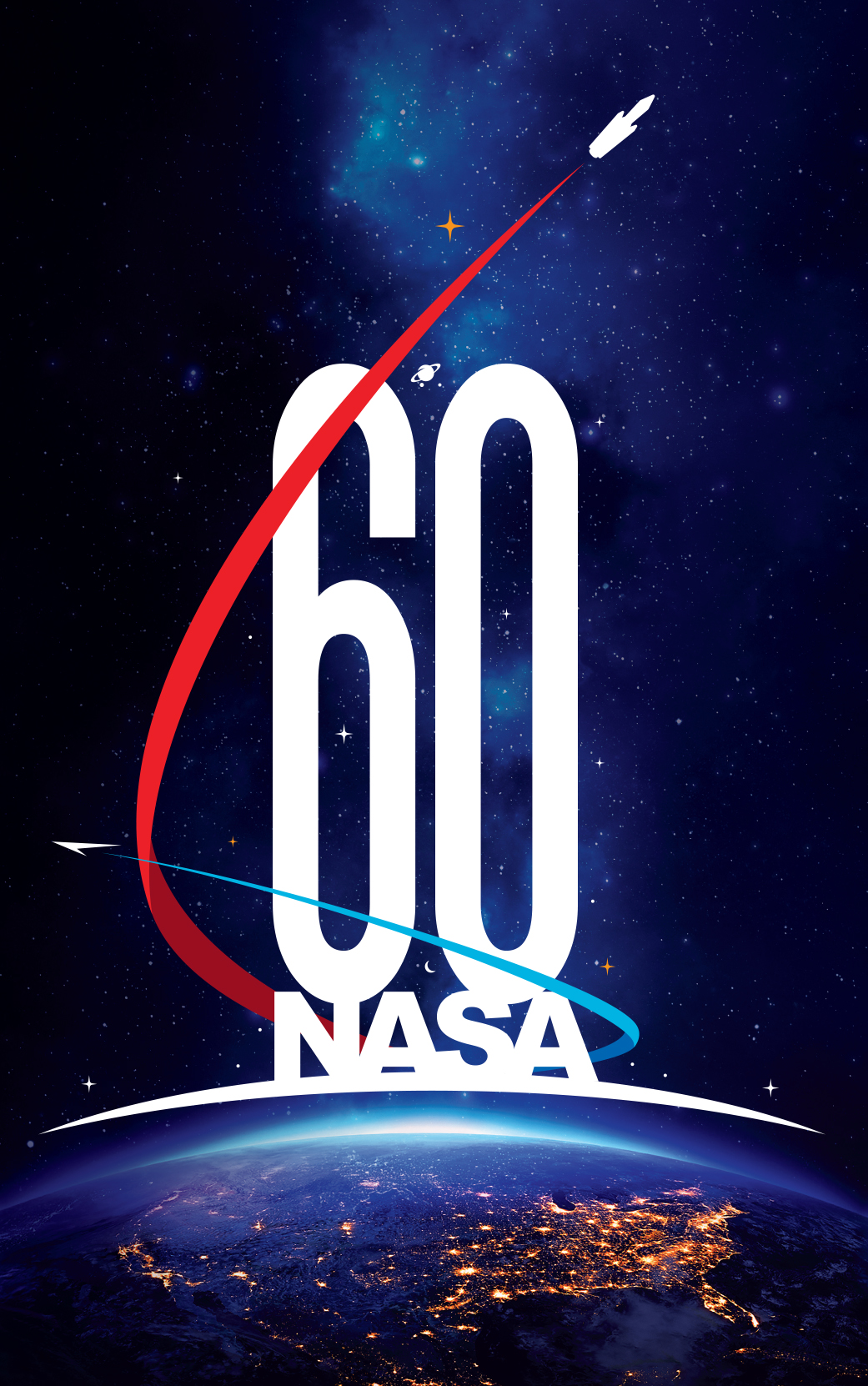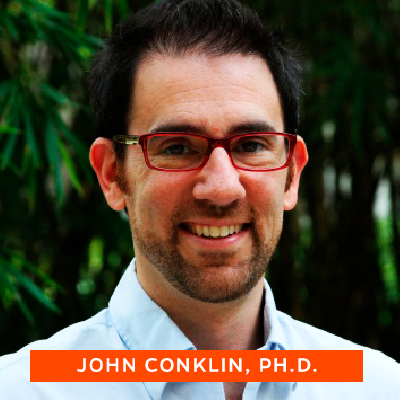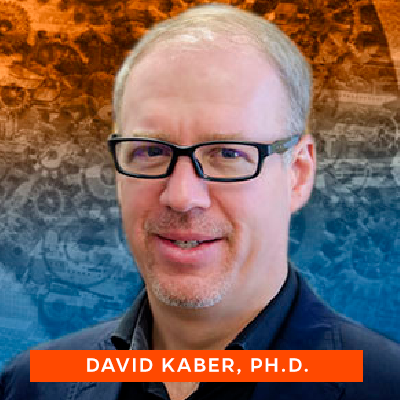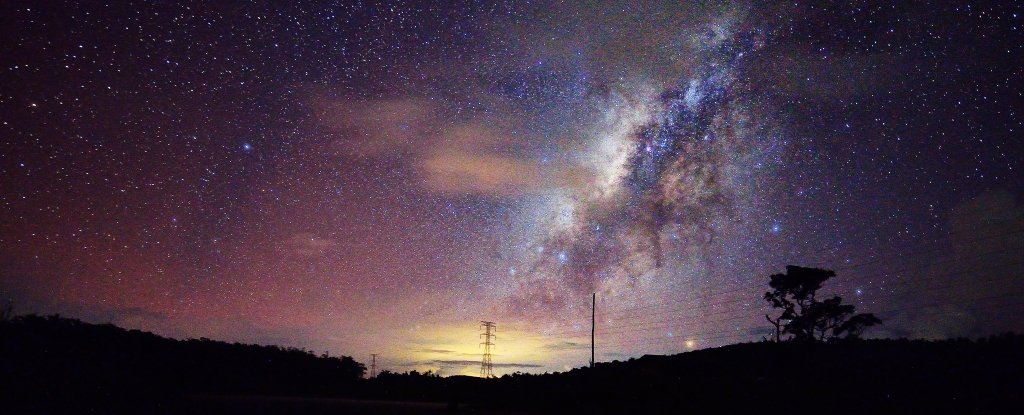
We’ve known each other a long time...
It’s been wonderful journeying with you over the years. Many of our departments in the Herbert Wertheim College of Engineering from Chemical Engineering to Materials Science, Biomedical, Mechanical & Aerospace and Industrial & Systems Engineering were able to contribute to the knowledge and know-how of space exploration, thanks to you.
We look forward to many more years of successful and productive collaboration. For now, here's a look at some major milestones and research projects associated with NASA.
Left: Created by NASA graphic artist Matthew Skeins, the official 60th anniversary logo depicts how NASA is building on its historic past to soar toward a challenging and inspiring future.
The late Dr. Byron E. Ruth, Professor Emeritus, Department of Civil and Coastal Engineering, received UF’s first recorded NASA grant in 1978 to explore “The Use of Remote Sensing in Solving Florida’s Geological and Engineering Problems".
That same year, Dr. Richard L. Fearn, Professor Emeritus, Department of Mechanical & Aerospace Engineering, received a NASA grant for a study about the velocity and pressures of a subsonic jet exhaust in the presence of crosswinds, known as “A Jet in a crossflow”.
UF became a founding member of the NASA Florida Space Grant Consortium (FSGC) in 1989,
The FSGC is an association of seventeen public and private Florida universities and colleges.
Its mission is to support the expansion and diversification of Florida’s space industry through grants, scholarships, and fellowships to students and educators from Florida’s public and private institutes of higher education.
UF received a University Research, Engineering & Technology Institute (URETI) grant from NASA in 2003 to fund the Institute for Future Space Transport.
The UF-led Institute for Future Space Transport focuses on four research areas: new propulsion technologies; lighter, stronger and more reliable spacecraft; improved systems to monitor the health and well-being of the spacecraft’s technological and life-support systems; and better ways to integrate all of the spacecrafts’ diverse systems.

Materials Science & Engineering
Dr. Allen received a NASA funded GeneLab innovation award in 2016 to review open-access spaceflight data available via NASA’s GeneLab to understand how living systems adapt to space environment and how that knowledge can be applied to better understand systems on Earth. Read more >>

J. Crayton Pruitt Family Department of Biomedical Engineering
Dr. Bolch worked with a NASA grant in 2013 on a comparative study of space radiation organ doses and associated cancer risks using one-dimensional (HZETRN) and three-dimensional (PHITS) radiation transport systems. Read more >>

Mechanical & Aerospace Engineering
A team of nine undergraduate and four graduate students led by Dr. Jacob Chung developed a special coating for the inside of the propellant transfer pipe to enable a faster cooling process and minimize cryogen loss. They tested their research aboard ZERO-G. Read more >>

Mechanical & Aerospace Engineering
Dr. Conklin’s Precision Space Systems Lab is using a $2.8 million NASA grant to develop a system for detecting background noise that could obscure data recordings of NASA’s Laser Interferometer Space Antenna (LSIA), which measures ripples in gravitational waves. Read more >>

Mechanical & Aerospace Engineering
Dr. Fitz-Coy is working to solve the problem of space debris with a $3 million grant from NASA. His research is focused on improving the models that exist to predict characteristics of debris that result from hypervelocity impacts in low earth orbit. Read more >>

Industrial & Systems Engineering
Dr. Kaber, chair of the Department of Industrial and Systems Engineering, worked with NASA Langley Research Center Aviation Safety Program funding at a previous institution to study aviation display clutter and its impact on pilot performance. Read more >>

Materials Science & Engineering
Dr. Manuel, chair of the Department of Materials Science & Engineering, is collaborating with NASA to develop a lightweight magnesium alloy, which is stronger and lighter than steel and aluminum. The goal is to create light spacecraft and reduce radiation exposure to both crew and equipment.

Chemical Engineering
Dr. Narayanan and his group were selected by NASA to lead one of 16 flight proposals aboard the International Space Station, an initiative under the MaterialsLab program, which aims to accelerate materials development and make new discoveries aboard the orbiting laboratory. Read more >>

Mechanical & Aerospace Engineering
Dr. Segal is executive director of the Institute for Future Space Transportation, a NASA URETI established in 2002. He is an Aeronautics and Astronautics Associate Fellow.

Materials Science & Engineering
Dr. Tonks is the principal investigator on an early innovation grant from NASA, where he is studying the performance of Phenolic Impregnated Carbon Ablator (PICA) materials. He is developing a modeling tool that will help test and predict the performance of protective materials. Read more >>
